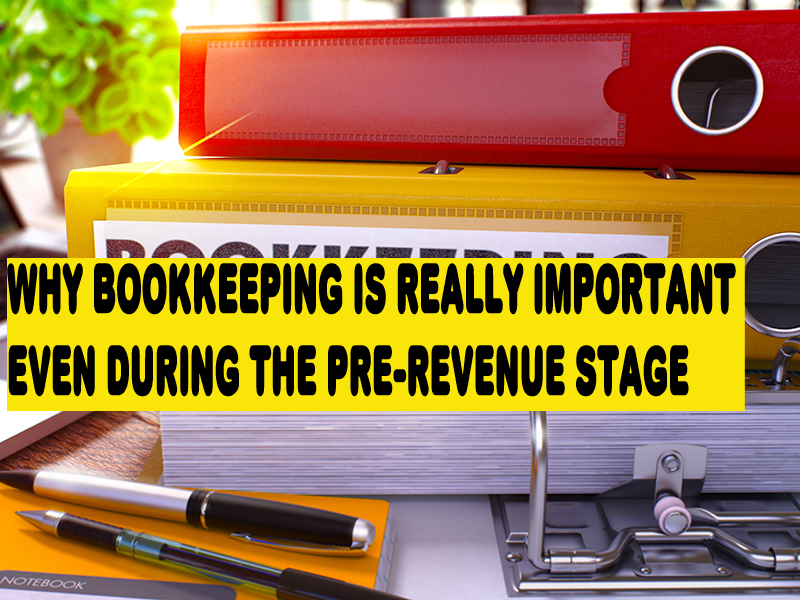
You are in the early phases of launching a business. Perhaps you are months away from launch, still figuring out how to incorporate, apply for business loans and work a cash register.
You may think like you are not making any money yet, so there is no point in keeping track of it using a bookkeeper – right?
Though it is real that a pre-revenue startup might not instantly require a full-time bookkeeper, any business that’s making even no revenue has to keep a clean set of books. Let’s find out why:
1. It saves you a lot of work:
Bookkeeping involves documenting your monetary transactions in one place – generally employing some sort of accounting software, or a spreadsheet.
You are perhaps already documenting your revenues or expenditures somewhere – on a spreadsheet, or in a notebook – which means you’re already doing some sort of bookkeeping.
Instead of kind of doing it now & redoing all the worker later in a hurry – when it is time to file your taxes or apply for a loan, for instance – it makes far more sense to begin documenting all those transactions correctly employing a real bookkeeping system immediately.
2. It tracks your expenditures:
Even though your business is getting no revenue, it is perhaps already spending cash to get off the ground – on rent, office supplies, licenses, equipment, and other startup costs.
You will have to track those expenditures, not only for your own purposes, but also if you want to deduct any of them on your taxes or asking a creditor or investor for money.
3. It helps you in thinking like a bank or investor:
When you visit a bank for a small business loan or approach an investor for money, the first thing they will want to check out is your books.
Leaving them disorganized until the last minute might mean that you yourself won’t get a good look at them, while getting a head start could help you catch any red flags before time.
If you are worried that some of your startup expenditures might get out of hand or look bad to a creditor, bookkeeping is the only way to go.
It helps in building positive financial habits early:
Bookkeeping pushes you to start doing things such as budgeting, bank reconciliations and splitting personal and business expenditures, which are positive financial habits to develop irrespective of what stage your business is at.

Tax Tips for the Self-Employed – Foster Financial
Analyzing the Cost vs. Benefits of Business Expenses
Strategies for Optimizing Your Investments